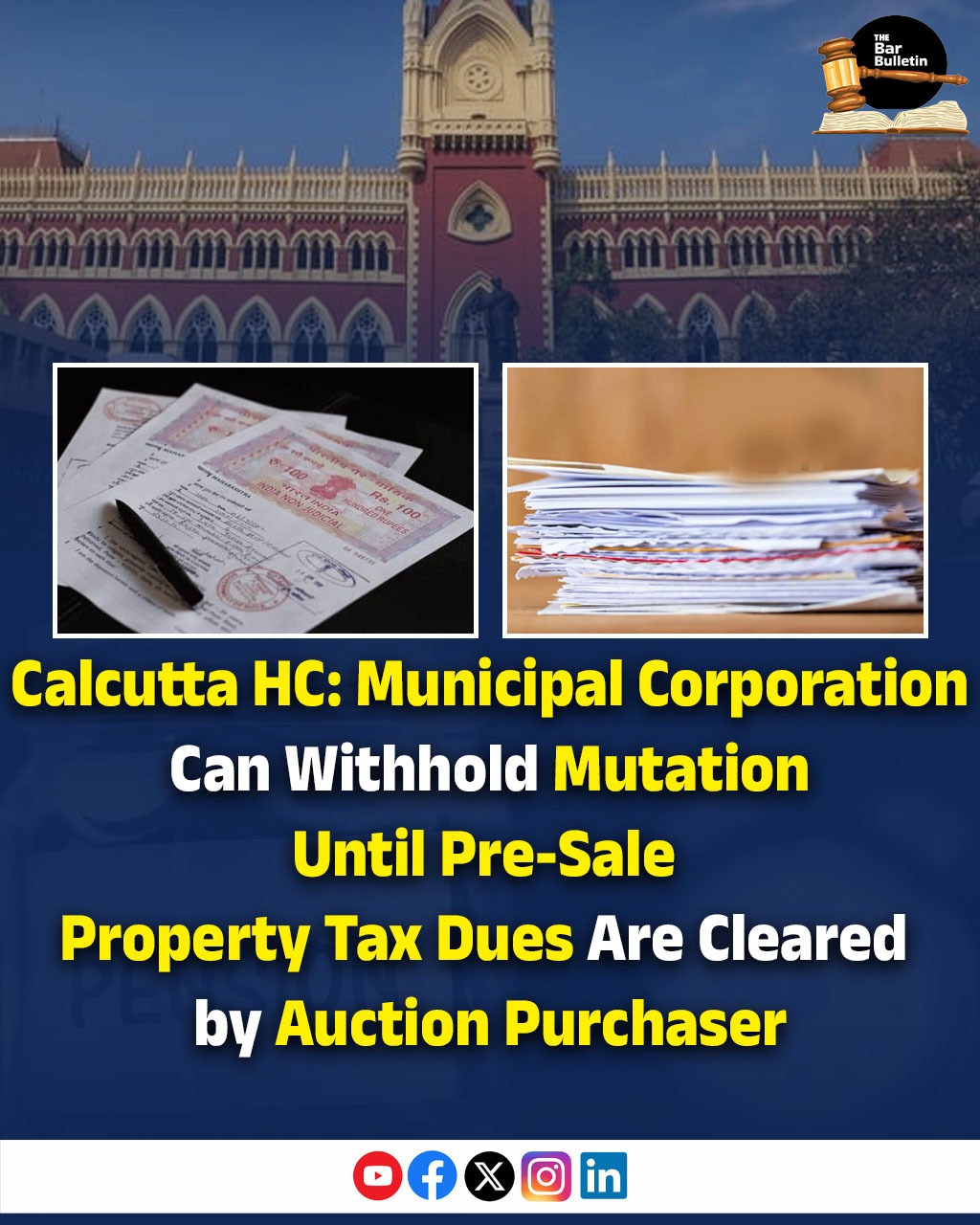The Calcutta High Court clarified that the petitioners, as auction purchasers, are liable to discharge outstanding property tax dues, including those that are accrued prior to the sale. The clarification came by referring to Section 232 of the Kolkata Municipal Corporation Act, 1980 (KMC), which states that property tax is a first charge on the property and thus constitutes a statutory encumbrance running with the land.
The Court emphasized that the sale was explicitly on an “as is where is, whatever there is and without recourse” basis, requiring bidders to undertake independent due diligence. Reference was made to the decisions in the case of K.C. Ninan v. Kerala State Electricity Board [(2023) 14 SCC 431] and Union of India v. Naskapara Jute Mills Co. Ltd. [(1994) 1 SCC 575]. Accordingly, the Court concluded that there was no illegality or arbitrariness in KMC’s letters withholding mutation until arrears are cleared.
A Single Judge Bench of Justice Gaurang Kanth explained that an “as is where is” sale transfers both assets and liabilities unless expressly excluded. The Single Judge also negated the applicability of the overriding clause of Section 238 of the Insolvency & Bankruptcy Code, 2016 (IBC), citing no conflict between the IBC and the KMC Act. Accordingly, KMC’s refusal to mutate the property until arrears were cleared was found lawful under Sections 183(5) and 232 of the KMC Act.
The Bench referred to Section 183(5) of the KMC Act and explained the 1997 amendment, which permitted the Corporation to refuse mutation where there are arrears of dues of the transferor/predecessor, and empowers the KMC to withhold mutation. The Bench added that auction purchasers are subject to caveat emptor; however, the burden to fasten a pre-sale liability on a purchaser depends on whether the purchaser was put on sufficient notice of the liability. If the sale documents give appropriate notice, the purchaser cannot later disavow the liability.
On the interplay between IBC and municipal law, the Bench explained the IBC/ liquidation regime (claims to be lodged with Liquidator under Regulations/Section 53 waterfall) but distinguishes that where a statutory first charge attaches to property (e.g., property tax under Section 232 KMC Act), the municipal authority may enforce that charge independently; and hence an overriding effect under Section 238 of IBC does not displace a statutory charge that runs with the property.
Briefly, in this case, the petitioners, garment manufacturers, had purchased four factory units in Kolkata through liquidation proceedings of Enfield Apparels Ltd. under the IBC. The sale was conducted by the liquidator via e-auction on an “as is, where is, whatever there is and without recourse” basis and confirmed by the NCLT in 2020.
After execution of the Deeds of Assignment in 2022, the petitioners sought mutation of the property before the Kolkata Municipal Corporation (KMC), offering to pay taxes from the date of possession (January 19, 2022). However, KMC demanded payment of the outstanding property tax of ₹1.23 crore (2008–2024), including arrears of the erstwhile owner. The petitioners challenged this demand, arguing that they were not liable for pre-sale dues since the property was acquired through liquidation, and such claims should have been settled by the liquidator under the IBC waterfall mechanism.
Appearances:
Senior Advocate Jaydip Kar, along with Advocates Deepnath Roy Chowdhury, Debdeep Sinha, and Dibesh Dwivedi, for the Petitioner/ Taxpayer
Advocates Sipra Majumder, Debarati Sen (Bose), Biswajit Mukherjee, and Gurudas Mitra, for the Respondent/ Revenue



